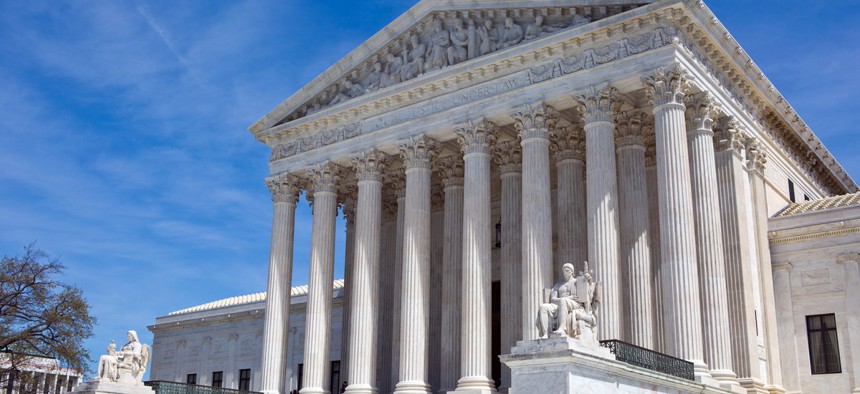Supreme Court Allows Trump Administration to Move Forward with 'Public Charge' Rule

Shutterstock/Steven Frame
States, advocacy groups and others have filed lawsuits to halt implementation of the rule, which limits the public assistance immigrants can receive and still be eligible for green cards.
A divided U.S. Supreme Court on Monday allowed the Trump administration to move ahead implementing a controversial new policy that is meant to give federal authorities more power to count the use of public benefits against people seeking to immigrate to this country.
The “public charge” rule has faced a number of challenges in lower courts, including the cases that led to Monday’s decision. A federal district court judge in New York issued a pair of nationwide injunctions in October that blocked the government from enforcing the rule.
Monday’s order grants a request that the Trump administration filed to lift that legal roadblock while further lower court proceedings take place. The court’s four liberal justices opposed the ruling.
The public charge concept had been part of U.S. immigration law for decades, according to the Department of Homeland Security. But last August the department issued an update of the rule that made it more stringent.
Under it, a “public charge” is defined as any noncitizen who receives one or more public benefits for more than 12 months within a three-year period. Among the benefits covered by the rule are food stamps, Medicaid and public housing assistance.
Each benefit is also counted separately, so that using two benefits for one month would count as two months of benefit use. Additionally, the rule includes a new framework for assessing whether a person is likely to become a public charge, looking at factors like their credit, language proficiency and family size.
Immigration authorities would weigh this information, and if they determine that a prospective immigrant is likely to rely on public benefits, it lowers the odds they’ll be granted a green card, affording them permanent legal residency.
Put another way, the rule favors wealthier immigrants, while disadvantaging those who are poorer, when it comes to the chances that they'll gain permanent legal status.
Nonprofits that work with immigrants brought one of the cases against the federal government that resulted in Monday’s Supreme Court ruling. New York state, New York City, Vermont and Connecticut mounted the other. The cases are still playing out on appeal.
Justices Neil Gorsuch and Clarence Thomas in a concurring opinion issued with Monday's order criticized what they described as the increasingly widespread practice of lower courts issuing nationwide injunctions—like the ones at issue in this situation.
“The real problem here is the increasingly common practice of trial courts ordering relief that transcends the cases before them,” they wrote.
“As the brief and furious history of the regulation before us illustrates,” the justices added, “the routine issuance of universal injunctions is patently unworkable, sowing chaos for litigants, the government, courts, and all those affected by these conflicting decisions.”
Bill Lucia is a Senior Reporter for Route Fifty and is based in Olympia, Washington.
NEXT STORY: Granting Anonymity to State Lawmakers—Behind Tinted Windows






